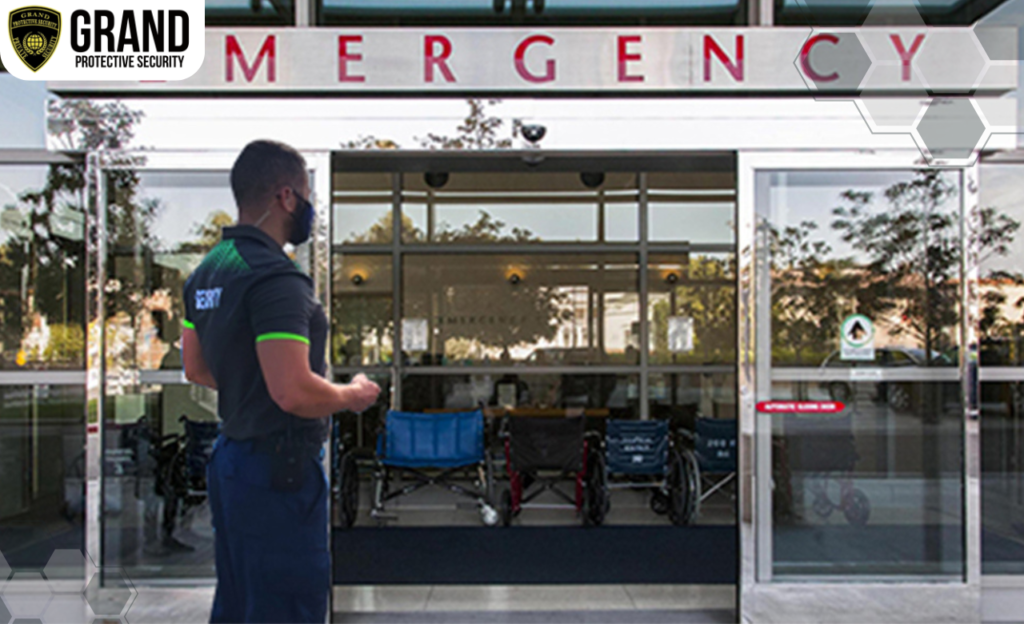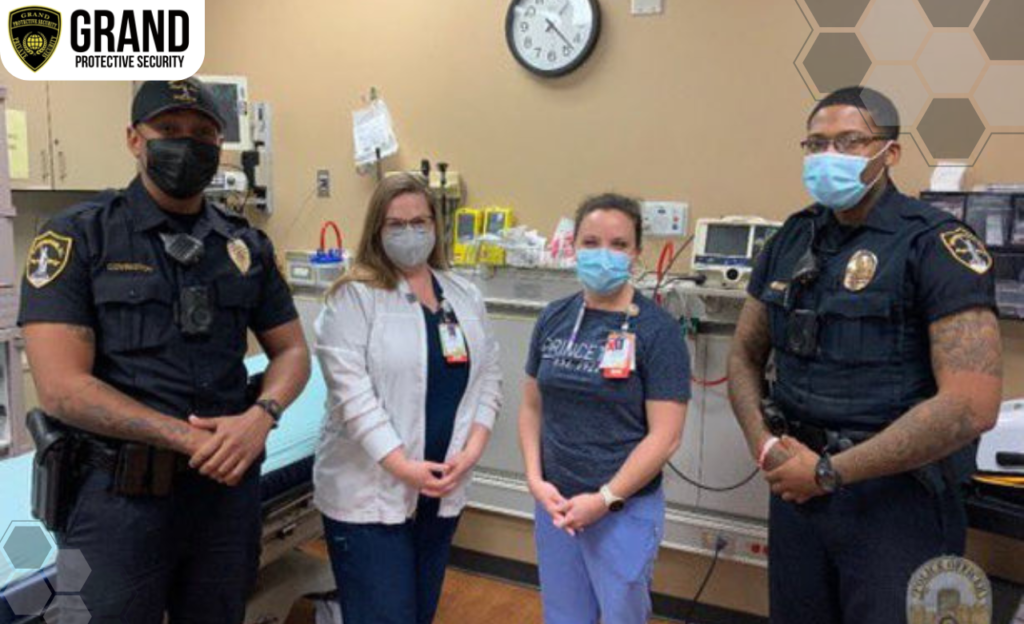Introduction
Hospitals require a secure environment to protect patients, staff, and visitors. Armed security guards for hospitals play a crucial role in maintaining safety by preventing unauthorized access, ensuring order, and handling security concerns effectively. Their presence helps create a safe atmosphere for everyone within the hospital premises.
Responsibilities of Armed Security Guards For Hospitals
Armed security guards in hospitals focus on security-related tasks rather than medical operations. Their primary responsibilities include:
1. Monitoring Hospital Entrances and Exits

Security guards ensure that only authorized personnel, patients, and visitors enter the hospital. They check identification, monitor visitor logs, and prevent unauthorized access.
2. Patrolling Hospital Premises
Regular patrols help identify any suspicious activity, ensuring the safety of the hospital property, parking lots, and surrounding areas.
3. Responding to Security Threats
Security personnel quickly address potential threats such as theft, trespassing, or disturbances within the hospital.
4. Enforcing Hospital Security Policies
Guards ensure that visitors follow hospital rules, such as restricted access to certain areas, visiting hours, and safety protocols.
5. Assisting in Conflict Resolution
If disagreements arise between patients, visitors, or staff, security guards help de-escalate the situation professionally.
6. Preventing Theft and Vandalism

Security guards protect expensive hospital equipment, medical supplies, and other valuable assets from theft or damage.
7. Coordinating with Law Enforcement
In serious situations, security guards work closely with police officers to ensure proper legal action is taken.
Required Training and Qualifications
To work as armed security guards for hospitals, candidates must meet certain requirements, including:
1. Security Training Certification
Guards must complete professional security training programs that cover patrol techniques, access control, and handling security threats.
2. Firearms Licensing and Training
Since they carry firearms, security guards must be trained in firearm safety, proper handling, and self-defense.
3. Background Checks and Licensing
Candidates must pass background checks and obtain security guard licenses to work in hospitals.
4. Physical Fitness and Alertness
Being physically fit and mentally alert is essential for responding quickly to security incidents.
5. Knowledge of Hospital Security Procedures
Understanding hospital safety protocols and emergency response strategies helps guards perform their duties efficiently.
Job Opportunities for Armed Security Guards For Hospitals
The demand for hospital security is increasing due to rising safety concerns. Many healthcare facilities, including public and private hospitals, clinics, and mental health institutions, hire armed security personnel. Some common job titles in this field include:
- Hospital Security Officer
- Armed Patrol Guard
- Healthcare Security Supervisor
- Emergency Response Security Officer
Hospitals prefer security personnel with experience in law enforcement, military service, or private security.
Conclusion
Armed security guards are essential for maintaining order and safety in hospitals. They focus on securing entrances, monitoring activity, and preventing security threats. Their presence ensures a safe environment for patients, visitors, and medical staff without interfering with medical procedures. Hiring professional hospital security services is vital for the protection and smooth operation of healthcare facilities.

